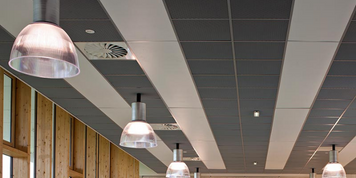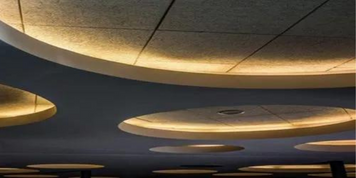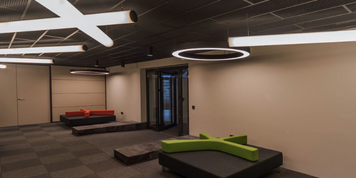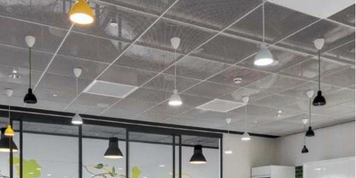Mineral Fiber Flooring: Mineral fiber flooring refers to a type of flooring made from mineral fibers, such as fiberglass or mineral wool. It is commonly used in commercial buildings, offices, and educational institutions. Mineral fiber flooring offers excellent acoustic properties, thermal insulation, and fire resistance. It is also known for its durability and resistance to moisture and mold. Mineral fiber flooring is available in various designs and textures, providing a wide range of options for different aesthetic preferences.
Metal Flooring: Metal flooring is a type of flooring made from metal materials, such as steel, aluminum, or stainless steel. It is commonly used in industrial settings, warehouses, and high-traffic areas where durability and strength are essential. Metal flooring offers excellent load-bearing capacity, chemical resistance, and easy maintenance. It is often used in applications where hygiene and cleanliness are important, such as food processing facilities or hospitals. Metal flooring can be customized to meet specific requirements and is available in different finishes and patterns.
False Flooring: False flooring, also known as raised flooring or access flooring, is a system of elevated flooring that creates a space between the structural floor and the finished floor surface. It consists of a grid of pedestals and removable floor panels, allowing easy access to services like electrical wiring, data cabling, and HVAC systems that run underneath. False flooring is commonly used in commercial buildings, data centers, and control rooms, where the need for flexible and accessible services is crucial. It provides improved aesthetics, flexibility in layout changes, and efficient management of services.
Services related to mineral fiber, metal, and false floorings typically involve the following:
Installation: Professional contractors can install mineral fiber, metal, or false flooring systems based on the specific requirements of a project. This includes preparing the subfloor, installing the necessary support structures or pedestals, and placing the appropriate flooring panels.
Maintenance and Repairs: Regular maintenance is important to ensure the longevity and optimal performance of the flooring systems. Services may include cleaning, inspections, repairs, and replacement of damaged components or panels.
Upgrades and Renovations: Contractors can assist in upgrading or renovating existing mineral fiber, metal, or false flooring systems. This may involve improving the structural integrity, enhancing the aesthetics, or integrating new technologies.
When considering these flooring options or services, it is advisable to consult with professional contractors or specialists who have expertise in the specific type of flooring you require. They can provide guidance, recommendations, and ensure that the installation or maintenance work is carried out correctly and meets relevant safety standards.








